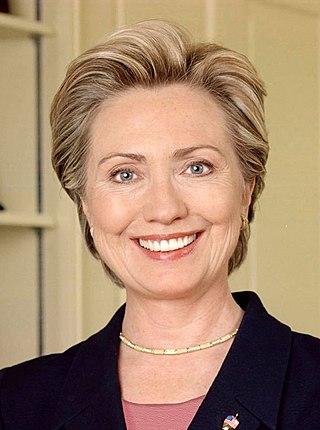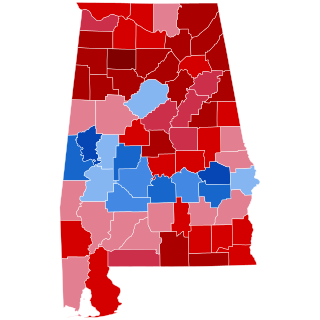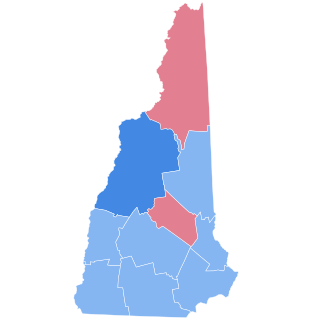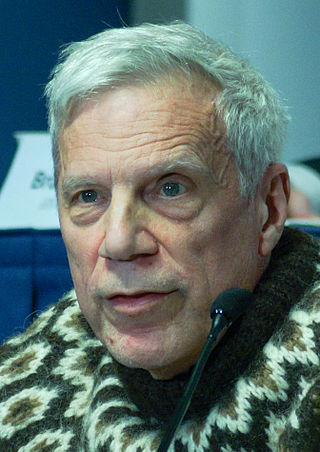Primary elections, or direct primary are a voting process by which voters can indicate their preference for their party's candidate, or a candidate in general, in an upcoming general election, local election, or by-election. Depending on the country and administrative divisions within the country, voters might consist of the general public in what is called an open primary, or solely the members of a political party in what is called a closed primary. In addition to these, there are other variants on primaries that are used by many countries holding elections throughout the world.

The presidential primary elections and caucuses held in the various states, the District of Columbia, and territories of the United States form part of the nominating process of candidates for United States presidential elections. The United States Constitution has never specified the process; political parties have developed their own procedures over time. Some states hold only primary elections, some hold only caucuses, and others use a combination of both. These primaries and caucuses are staggered, generally beginning sometime in January or February, and ending about mid-June before the general election in November. State and local governments run the primary elections, while caucuses are private events that are directly run by the political parties themselves. A state's primary election or caucus is usually an indirect election: instead of voters directly selecting a particular person running for president, they determine the number of delegates each party's national convention will receive from their respective state. These delegates then in turn select their party's presidential nominee. The first state in the United States to hold its presidential primary was North Dakota in 1912, following on Oregon's successful implementation of its system in 1910.

The New Hampshire presidential primary is the first in a series of nationwide party primary elections and the second party contest held in the United States every four years as part of the process of choosing the delegates to the Democratic and Republican national conventions which choose the party nominees for the presidential elections to be held the subsequent November. Although only a few delegates are chosen in the New Hampshire primary, its real importance comes from the massive media coverage it receives. Spurred by the events of the 1968 election, reforms that began with the 1972 election elevated the two states' importance to the overall election, and began to receive as much media attention as all of the other state contests combined. Examples of this extraordinary coverage have been seen on the campuses of Dartmouth College and Saint Anselm College, as the colleges have held multiple national debates and have attracted media outlets like NPR, Fox News, CNN, NBC, and ABC. The publicity and momentum can be enormous from a decisive win by a frontrunner, or better-than-expected result in the New Hampshire primary. The upset or weak showing by a front-runner changes the calculus of national politics in a matter of hours, as happened in 1952 (D), 1968 (D), 1980 (R), and 2008 (D).

A political campaign is an organized effort which seeks to influence the decision making progress within a specific group. In democracies, political campaigns often refer to electoral campaigns, by which representatives are chosen or referendums are decided. In modern politics, the most high-profile political campaigns are focused on general elections and candidates for head of state or head of government, often a president or prime minister.

Patrick Hayward Caddell was an American public opinion pollster and a political film consultant who served in the Carter administration. He worked for Democratic presidential candidates George McGovern in 1972, Jimmy Carter in 1976 and 1980, Gary Hart in 1984 (primary), Walter Mondale in 1984, Joe Biden in 1988, and Jerry Brown in 1992. He also worked for Mario Cuomo, Bob Graham, Michael Dukakis, Paul Simon, Ted Kennedy, Harold Washington, and Andrew Romanoff.

The 2008 New Hampshire Republican presidential primary took place on January 8, 2008, with 12 national delegates being allocated proportionally to the popular vote. Arizona Senator John McCain won 7 of the delegates.

The 2008 New Hampshire Democratic presidential primary on January 8, 2008 was the first primary in the United States in 2008. Its purpose was to determine the number of delegates from New Hampshire that would represent a certain candidate at the National Convention. In a primary, members of a political party—in this case, the Democratic Party—will select the candidates to a subsequent election. Since 1920, New Hampshire has always hosted the first primaries in the entire nation. The Democratic Party's primary occurred on the same day as the Republican primary.

The 2016 New Hampshire Republican presidential primary, which took place on February 9, was the second major vote of the cycle. Donald Trump was declared the winner with 35.3% of the popular vote and picked up 11 delegates, while John Kasich emerged from a pack of candidates between 10-20% to capture second place with 15.8% of the vote and picked up four delegates.

The 2016 New Hampshire Democratic presidential primary was held on Tuesday February 9. As per tradition, it was the first primary and second nominating contest overall to take place in the cycle. Bernie Sanders defeated Hillary Clinton in the primary by a margin of more than 22% in the popular vote. Sanders claimed 15 delegates to Clinton's 9.

Andrew Yang is an American businessman, attorney, lobbyist, and politician. Yang was a candidate in the 2020 Democratic Party presidential primaries and the 2021 New York City Democratic mayoral primary. He is the co-chair of the Forward Party, alongside former New Jersey Governor Christine Todd Whitman.

NextGen America is a progressive advocacy nonprofit and political action committee created in 2013 by billionaire hedge fund manager Tom Steyer. The group mobilizes young voters on issues including climate, health care, reproductive freedom, immigration, and equality. Since its founding, the 501(c)(4) organization has registered 1.3 million voters, and contacted millions of young people with messages encouraging them to vote.

The Walter Mondale 1984 presidential campaign began on February 21, 1983, when Walter Mondale, a former Minnesota senator and vice president of the United States, announced that he was running for president in a speech at the Minnesota State Capitol. Mondale won the Democratic Party's presidential nomination after convincing Frank Lautenberg, a previously unpledged party delegate, to support him. Lautenberg's vote gave Mondale the 1,967 delegate votes needed to become the Democratic Party's nominee. Mondale lost the general election, held on November 6, 1984, to incumbent Republican President Ronald Reagan in a landslide. Had Mondale been elected, he would have been the first U.S. president from Minnesota and the first non-incumbent vice president since Richard Nixon to take office as president. Ferraro would also have been the country's first female vice president, and the first person from New York since Nelson Rockefeller to become vice president, whereas her husband, John Zaccaro, would also have been the country's first second gentleman.

The 2020 United States presidential election in Alabama took place on Tuesday, November 3, 2020, as part of the 2020 United States presidential election in which all 50 states and the District of Columbia participated. Alabama voters chose nine electors to represent them in the Electoral College via a popular vote pitting incumbent Republican President Donald Trump and his running mate, incumbent Vice President Mike Pence, against Democratic challenger and former Vice President Joe Biden and his running mate, United States Senator Kamala Harris of California. Also on the ballot was the Libertarian nominee, psychology lecturer Jo Jorgensen and her running mate, entrepreneur and podcaster Spike Cohen. Write-in candidates were permitted without registration, and their results were not individually counted.

The 2020 United States presidential election in New Hampshire was held on Tuesday, November 3, 2020, as part of the 2020 United States presidential election in which all 50 states and the District of Columbia participated. New Hampshire voters chose electors to represent them in the Electoral College via a popular vote, pitting the Republican Party's nominees, incumbent President Donald Trump and Vice President Mike Pence, against the Democratic Party's nominees, former Vice President Joe Biden and his running mate, Senator Kamala Harris. New Hampshire has four electoral votes in the Electoral College.

The 2020 presidential campaign of Tulsi Gabbard, the U.S. representative for Hawaii's 2nd congressional district, began on January 11, 2019. In January 2020, she was polling at about 1 to 2 percent. Had she won, she would have become the first female, Hindu, and Samoan president in American history, and the youngest person to ever hold the office. She made reducing military activity abroad a central message of her campaign.

The 2020 presidential campaign of Bernie Sanders was an election campaign from the junior United States senator and former representative from Vermont. It began with Sanders's formal announcement on February 19, 2019. The announcement followed widespread speculation that he would run again after running unsuccessfully in the 2016 Democratic presidential primaries.

Henry F. Hewes is an American real estate developer and perennial candidate. Throughout his career, he ran for Mayor of New York City and for the U.S. Senate as the nominee of the Right to Life Party. He served on the presidential campaigns of numerous Republican politicians.
Social media was used extensively in the 2020 United States presidential election. Both incumbent president Donald Trump and Democratic Party nominee Joe Biden's campaigns employed digital-first advertising strategies, prioritizing digital advertising over print advertising in the wake of the pandemic. Trump had previously utilized his Twitter account to reach his voters and make announcements, both during and after the 2016 election. The Democratic Party nominee Joe Biden also made use of social media networks to express his views and opinions on important events such as the Trump administration's response to the COVID-19 pandemic, the protests following the murder of George Floyd, and the controversial appointment of Amy Coney Barrett to the Supreme Court.
Media coverage of the 2016 presidential election was a source of controversy during and after the 2016 election, with various candidates, campaigns and supporters alleging bias against candidates and causes.
The 1992 presidential campaign of Tom Harkin, a U.S. Senator from Iowa, began with a campaign rally on September 15, 1991. Harkin had first been elected to a national office in 1974 as a member of the House of Representatives, serving from 1975 to 1985, when he became a senator. A member of the Democratic Party, Harkin established himself as a populist liberal, supporting New Deal-style policies while receiving broad support from organized labor and left-leaning voters. Harkin was very critical of then-President George H. W. Bush, a conservative Republican, and positioned himself as the most liberal candidate in the Democratic field. His policy positions included support for a national health insurance system, cuts to military funding, and increased funding for infrastructure.














